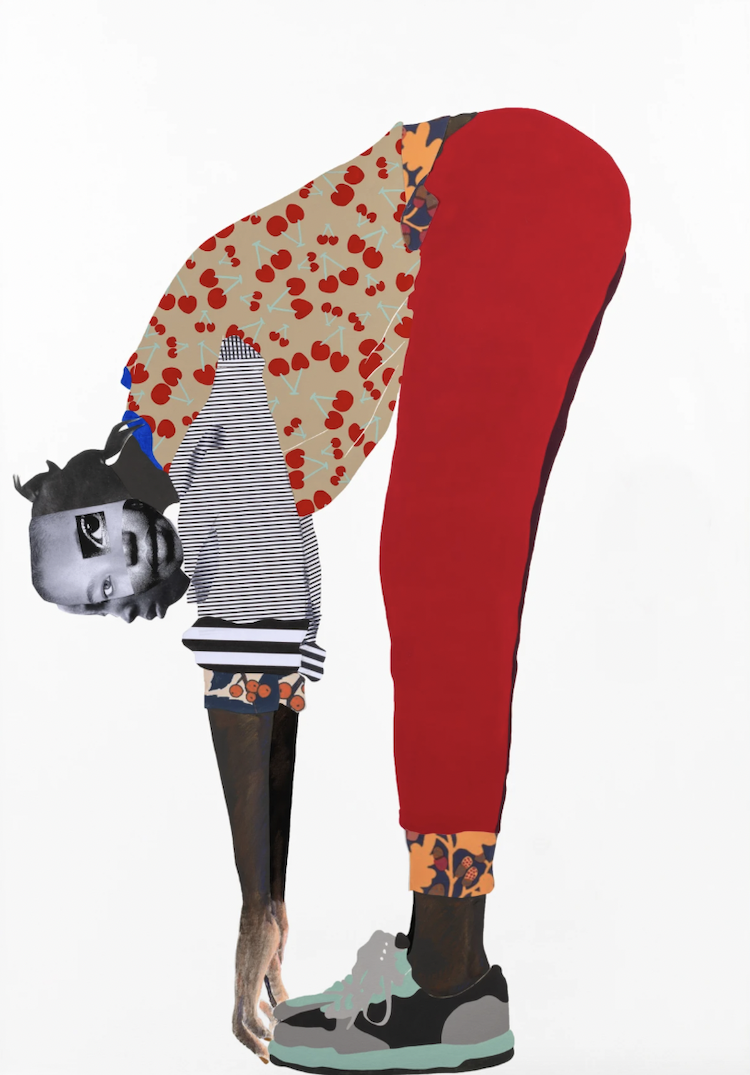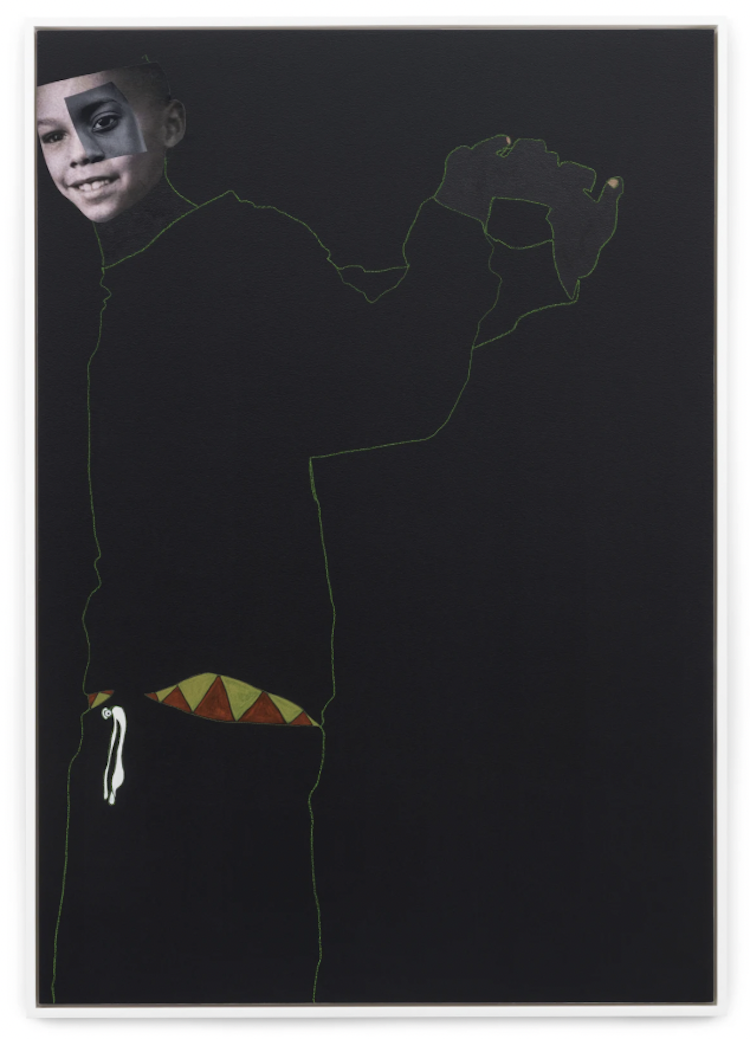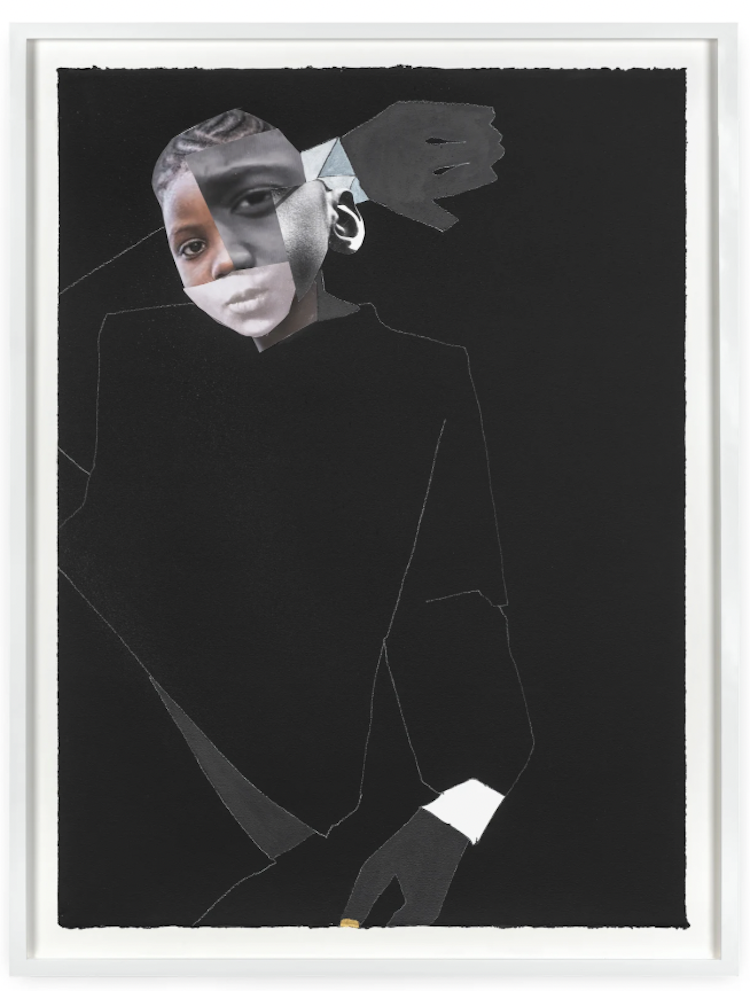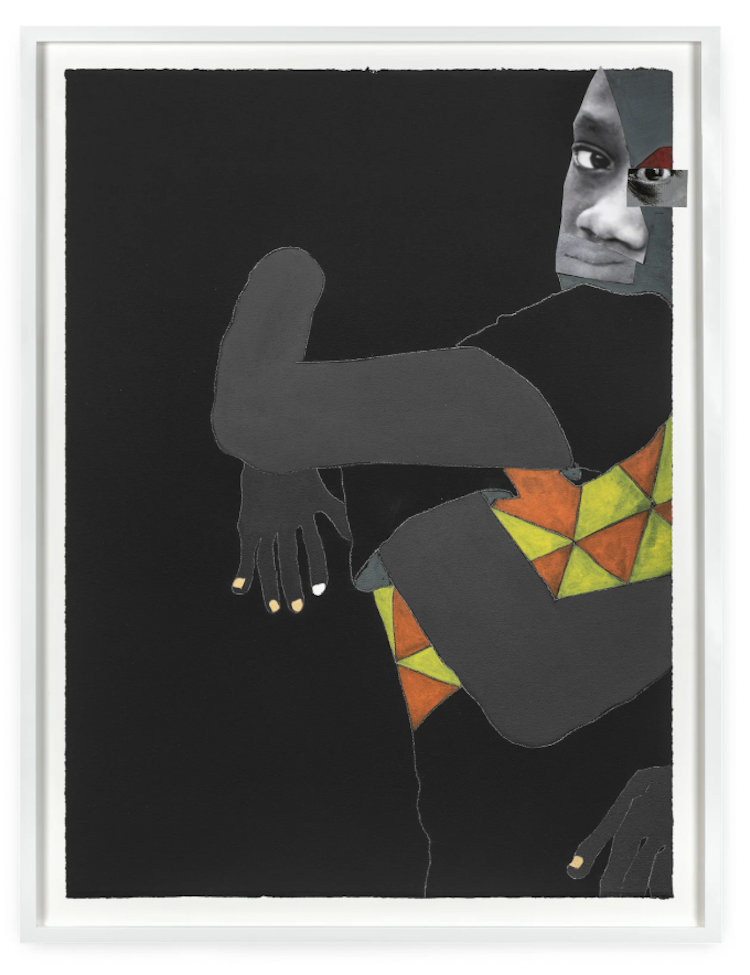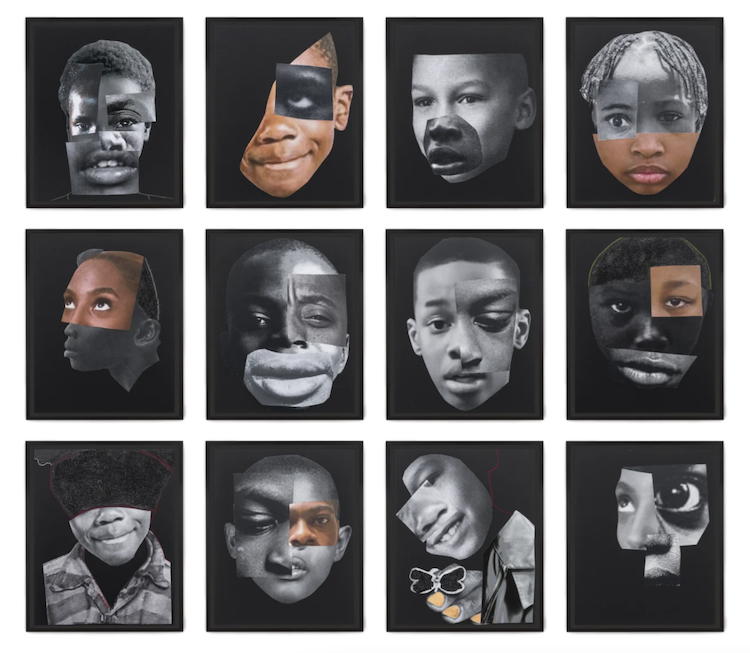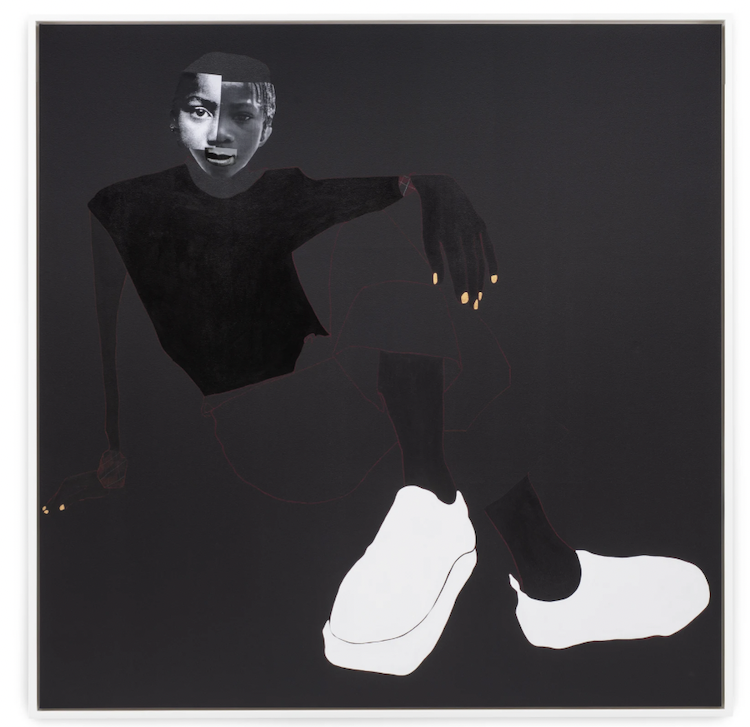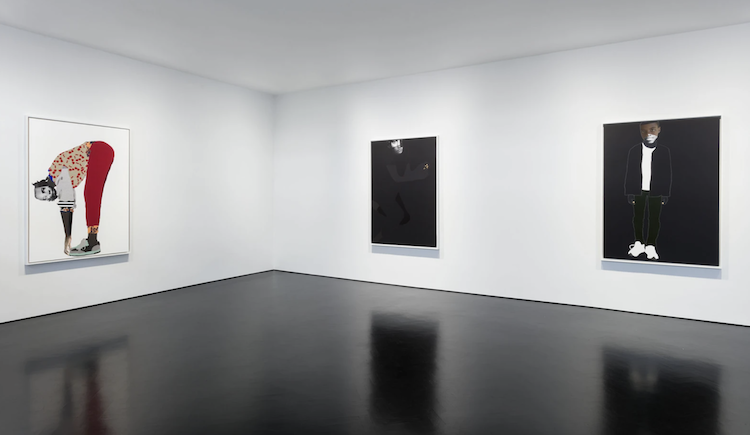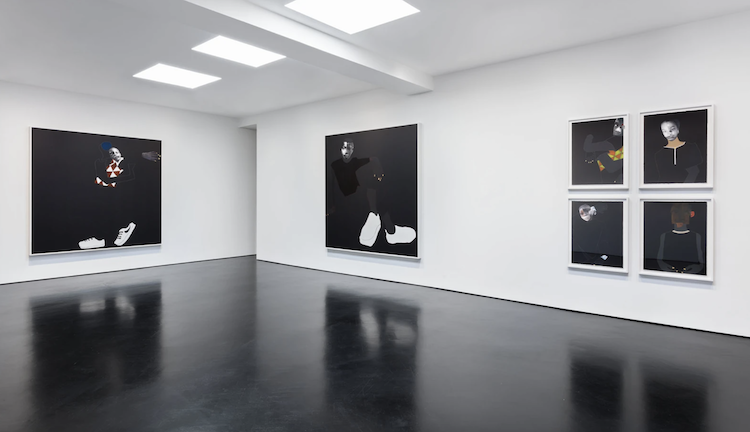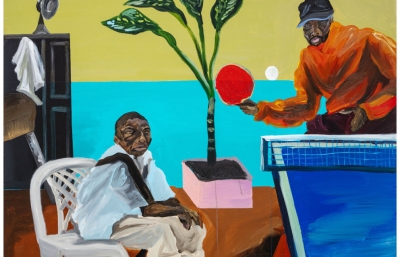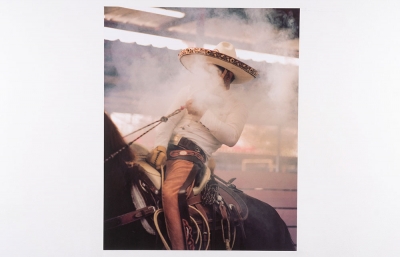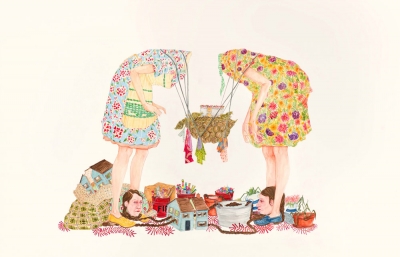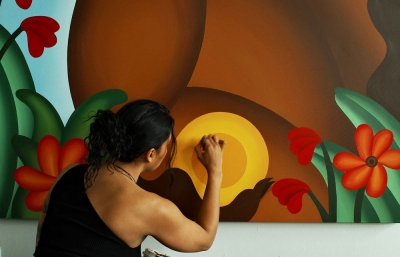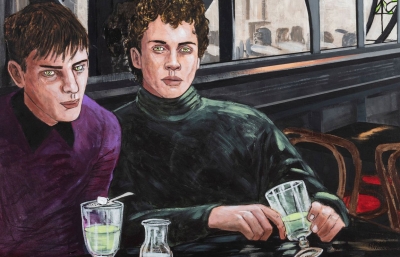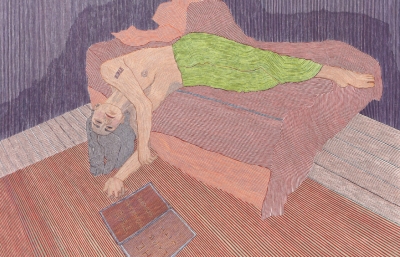Stephen Friedman Gallery is pleased to present Deborah Roberts’ second solo exhibition at the gallery, I have something to tell you.
The show features new paintings dominated by black backgrounds and some of the largest works the artist has ever made. Simultaneously powerful and vulnerable, heroic and insecure, Roberts’ subjects reveal how systemic racism, gender politics and western beauty standards shape the way Black children grow up. Amongst the references that inform the series are prominent incidents of racism in the UK, including the recent case of Child Q.
By mastering collage – a medium used since the early twentieth century to challenge socio-political norms – Roberts exposes the inequities and violence of contemporary society. Composing works using found materials from the internet, literature and photographs, the artist deconstructs stereotypes perpetuated by mainstream visual culture. Roberts juxtaposes these with hand-painted details, combining a range of skin tones, facial features, hairstyles and clothes to embrace an expansive view of Black identity.
Roberts continues her investigation into the psychological burden that Black children bear by highlighting their lack of visibility. Subtle variations in skin tone render Roberts’ figures barely discernible, drawing the viewer in closer to acknowledge their presence. This is emphasised by her sparse use of line, alluding to the chalk outlines drawn around bodies in crime scenes.
Roberts also draws upon Western art history to critique current racial injustices. The twisted poses of her figures recall Egon Schiele’s contorted human forms, addressing the violence inflicted on Black individuals forcibly arrested by the police. Roberts references Picasso’s Black Period and his reluctance to acknowledge the influence of African art on his own practice. She instead champions the so-called ‘primitive’ African designs appropriated by Picasso, letting them stand out in the clothes worn by several of the children.

